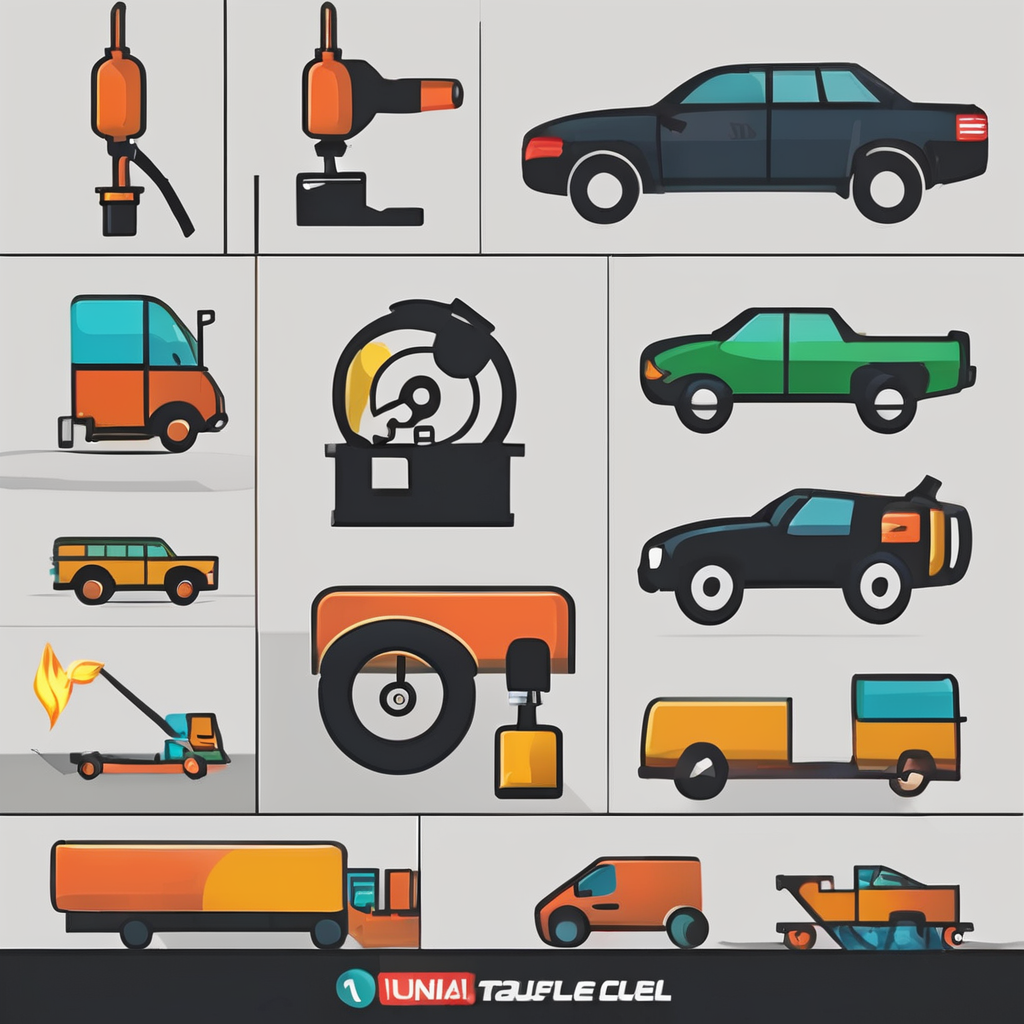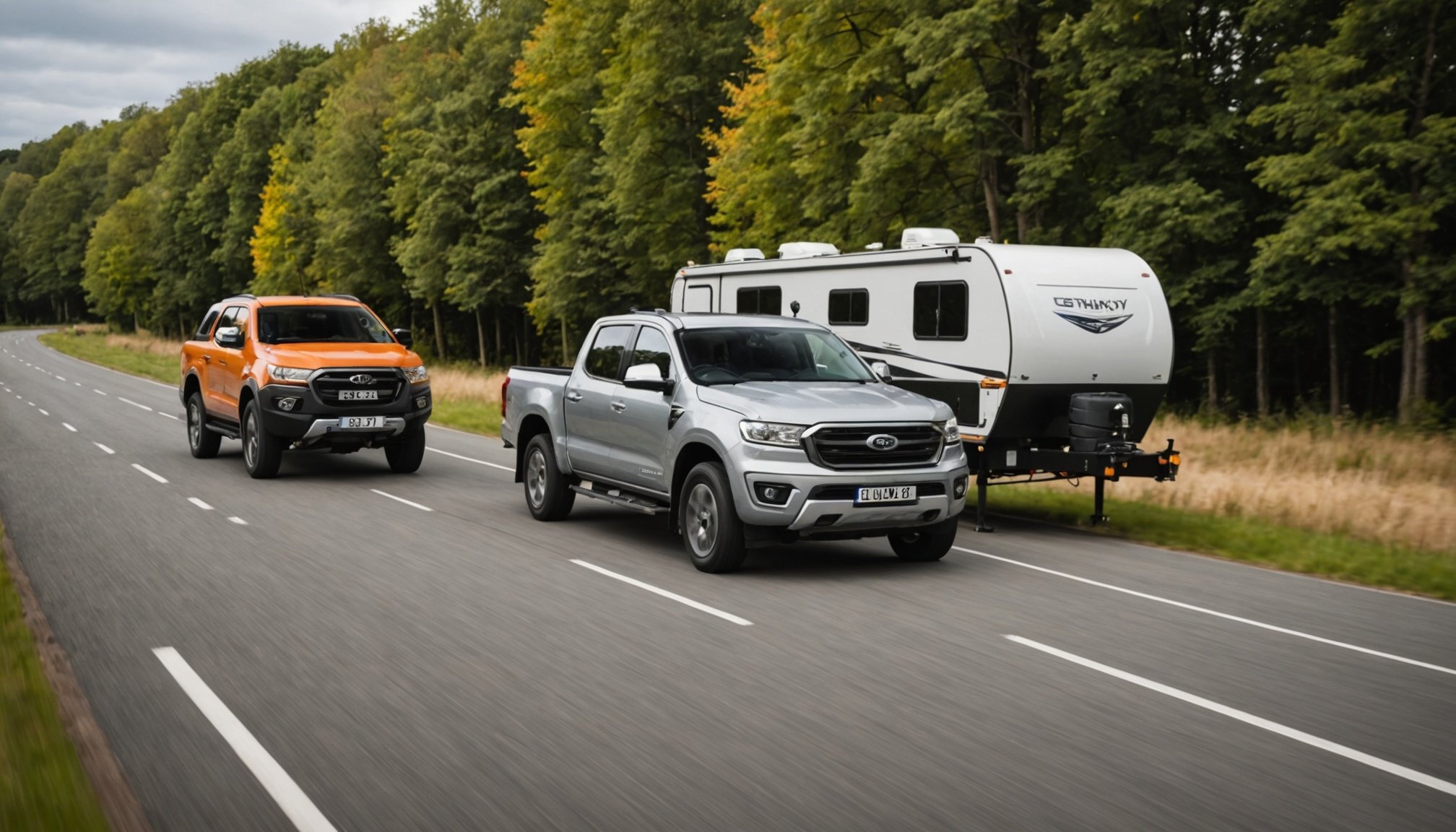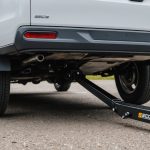Understanding Towing Capacity
Towing capacity is a crucial specification indicating the maximum weight a vehicle can safely tow. Manufacturers determine tow ratings based on factors such as engine power, transmission, chassis strength, and braking capability. Recognising your vehicle’s towing capacity is essential for safe transportation of trailers, caravans, or other heavy loads.
Vehicle specifications, including engine type, drivetrain, and axle ratios, directly influence towing capacity. The process involves rigorous testing and engineering assessments to ensure the vehicle can handle the stresses of towing while maintaining control and safety. Tow ratings serve as benchmarks, helping consumers match vehicles with their specific towing needs.
Also to see : Unlocking vat secrets for uk business vehicle acquisitions: your ultimate guide to success
Several factors affect towing capacity, including vehicle weight, aerodynamics, and the presence of special towing packages. These packages often include enhancements like upgraded cooling systems, heavier-duty suspensions, and more robust brakes. It’s critical to consider these elements when selecting a vehicle for towing purposes.
Understanding these aspects allows you to make informed decisions, ensuring your vehicle is equipped for the task. Prioritising safe towing practices and adhering to vehicle specifications can prevent potential hazards associated with overloading or improper load management. Always consult your vehicle’s manual and relevant resources when planning to tow.
Topic to read : Unlocking the secrets of the uk”s congestion charge zones: an essential guide for electric vehicle drivers
Legal Regulations in the UK
Navigating UK towing regulations is essential for ensuring compliance and safety when towing. These laws dictate the permissible limits and address licensing requirements for different vehicle and trailer combinations. The type of driving licence you hold—whether it is a standard category B or includes additional entitlements—influences what you can legally tow. For instance, drivers who passed their test before 1 January 1997 may have more allowances compared to those who qualified after that date, who might need to take further tests to tow heavier loads.
Understanding the implications of towing laws is important, especially regarding weight limits. Exceeding these limits can lead to legal penalties, increased insurance costs, and heightened risk on the roads. Vehicle manufacturers often provide guidelines, but it’s up to the driver to adhere to these and ensure their load does not surpass the Gross Train Weight (GTW).
For compliance, always check the Vehicle Identification Number (VIN) plate for towing capacities and ensure your combination falls within the legal weight range. This vigilance not only avoids legal issues but also ensures the safety of all road users.
Improving Your Vehicle’s Towing Performance
Enhancing your vehicle’s towing performance can significantly improve safety and efficiency. Key upgrades include enhancing the suspension and brake systems. An improved suspension provides better stability, reducing sway and bounce during towing. Upgrading to heavy-duty brakes offers enhanced stopping power, crucial for managing heavier loads safely.
The quality and pressure of your tyres are equally vital. Proper tire maintenance ensures they can handle the demands of towing, reducing wear and potential blowouts. Always check for correct inflation and invest in high-quality tyres designed for towing conditions.
To further optimise performance, consider using weight distribution hitches and stabilizers. These devices help distribute the towed weight evenly across the vehicle’s axles. This distribution maintains balance and control, particularly when navigating curves or uneven terrain. Additionally, stabilizers minimise trailer sway, providing a smoother ride.
Attention to these vehicle modifications not only boosts towing efficiency but also extends your vehicle’s longevity. Implementing these measures ensures you are equipped for a safer towing experience. This proactive approach can also help prevent accidents, protecting both the driver and other road users.
Load Calculation and Distribution
Understanding load calculation and effective weight distribution is critical for safe towing practice. Accurately calculating the loaded weight of your vehicle ensures that you remain within your vehicle’s towing capacity. This involves taking stock of everything you’re towing, including passengers, cargo, and the trailer itself. Ensure that the total loaded weight does not exceed both the Gross Vehicle Weight Rating (GVWR) and the Gross Combination Weight Rating (GCWR).
Weight distribution plays a vital role in maintaining stability and control while towing. Evenly distributing weight across your vehicle’s axles helps prevent issues such as sway and loss of control. To achieve this, organise your cargo so that it balances between the front and rear axles, typically placing heavier items slightly forward of the trailer axle.
Here are some tips for balanced towing:
- Use weight distribution hitches for heavier loads.
- Regularly check tie-downs and adjust as necessary.
- Be mindful of cargo placement and shift items if you notice uneven handling.
Prioritising these aspects not only enhances towing safety but also ensures a more efficient and stress-free experience on the road.
Vehicle Comparisons for Towing
When choosing a vehicle for towing, several factors come into play, including towing capability and fuel efficiency. Understanding these aspects is crucial to selecting the right fit for your needs. Leading the UK market are popular towing vehicles like pickup trucks and SUVs, known for their robust towing capacity.
Vehicle comparison involves examining specifications such as engine size, torque, and the presence of additional towing features. Diesel engines often provide better torque for towing, though petrol engines may offer superior fuel economy over long distances. Balancing these factors with your specific requirements, such as the type of trailer or caravan you plan to tow, ensures you make an informed decision.
For those towing caravans, vehicles with high towing ratings and stability control systems are recommended. Trailers, which may involve less weight, could pair well with mid-sized SUVs. Consideration of hitch and braking systems is also important for safe towing.
By carefully comparing these options, you can select a vehicle that not only meets your towing capability needs but also aligns with your lifestyle and environmental considerations.
Safety Tips for Towing
Ensuring towing safety should be your top priority before hitting the road. Begin with essential safety checks: inspect hitch connections and verify light functionality, as these elements are critical for visibility and communication with other drivers.
Maintaining control during towing is fundamental. Adopt these proven towing practices:
- Keep a safe distance from other vehicles to accommodate longer stopping times.
- Use mirrors frequently to monitor the towed load and surrounding traffic.
Navigating different conditions requires adaptability. In adverse weather, like rain or snow, reduce speed and increase vigilance to counter slick surfaces that can impact your control. When dealing with varied terrain, moderate your speed on slopes to mitigate safety precautions concerning brake strain and vehicle overheating. Use a lower gear when descending to aid braking.
Implementing these practices ensures a safer journey, safeguarding not only your vehicle and trailer but also the well-being of fellow road users. Always prioritise safety to prevent accidents, offering peace of mind during your travels.
Resources for Further Assistance
Navigating the complexities of towing often requires access to reliable towing resources. Key resources include websites and tools that offer detailed guidance on towing practices and industry standards. Websites from car manufacturers or recognised motor organisations provide comprehensive data on tow ratings and specific vehicle specifications.
For those unsure about their vehicle’s towing capacity, engaging professional services for a capacity assessment can be extremely beneficial. These services conduct rigorous evaluations and offer recommendations tailored to your specific vehicle and towing needs. Obtaining this specialist insight can prevent issues stemming from incorrect load calculations or unsuitable vehicle modifications.
In the UK, several organisations are dedicated to offering support for towing enthusiasts. Reputable groups provide updates on UK towing regulations, licensing requirements, and advice on meeting legal obligations. They serve as valuable contacts for resolving uncertainties surrounding towing laws or safety practices.
By utilising these resources, both novice and experienced towers can ensure they adhere to best practices and meet all necessary standards, thus enhancing their towing experience and safety on the roads.











